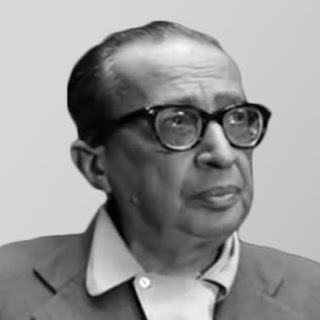Biography.
Manuel Carneiro de Sousa Bandeira Filho (April 19, 1886 – October 13, 1968) was a Brazilian poet, literary critic, and translator, who wrote over 20 books of poetry and prose. Bandeira's poems have a unique delicacy and beauty. Recurrent themes that can be found in his works are: the love of women, his childhood in the Northeast city of Recife, friends, and health problems. His delicate health affected his poetry, and many Many of his poems depict the limits of the human body. He contributed poems of political and social criticism to the Modernist Movement in São Paulo.
I Am Going To Pasargada
I am going away to Pasargada
There I am friend of the king
There I have the woman I want
On the bed that I shall choose
I am going away to Pasargada.
I am going away to Pasargada
Here I am not happy
There life is an adventure
I such a non-mattering way
That Joan the Mad Woman of pain
Queen and pretended insane
Is relative once removed
From the daughter-in-law I never had.
And how I will exercise!
I will pedal my bicycle!
I will ride the wild ass!
I will climb the greased pole!
I will bathe in the sea!
And when I am tired
I will lie on the banks of the river
And call the nymph of the water
To tell me the stories
That Rose used to tell me
When I was a boy
I am going away to Pasargada.
There´s everything in Pasargada
It´s another civilization:
It has s safe and sure way
To prevent knocking the girls up
It has automatic telephone
It has plenty of dope
It has beautiful prostitutes
For one to make love to.
And when I become sadder
So sad that I have no more hope
And when in the night it comes:
The desire to kill myself
— Ah, there I am friend of the king —
Then I have the woman I want
On the bed that I shall choose
I am going away to Pasargada.
Translated by John Nist
My Last Poem
I would like my last poem thus
That it be gentle saying the simplest and least intended things
That it be ardent like a tearless sob
That it have the beauty of almost scentless flower
The purity of the flame in which the most limpid diamonds are consumed
The passion of suicides who kill themselves without explanation.
Translated by Elizabeth Bishop
Absolute Death
To die.
To die body and soul.
Completely.
To die without leaving the sad remains of flesh,
Without leaving the bloodless mask of wax,
Surrounded by flowers,
Which will rot away — so happy! — one day,
Bathed in tears
Born less from grief than from the shock of death.
To die without leaving perhaps even a pilgrim soul…
On the way to heaven?
But what heaven can fulfill your dream of heaven?
To die without leaving a furrow, a trace, a shadow,
Without leaving even the remembrance of a shadow
In any human heart, in any human thought,
In any human skin.
To die so completely
That one day when somebody sees your name on a page
He will ask: “Who was he?...”
To die still more completely:
Without leaving even this name.
Translated by John Nist



